Large footprints crisscross the terrain of the Torotoro National Park, with some tracks stretching over a meter in diameter. These are the reminders of the dinosaurs that once roamed the area millions of years ago.
With over 3,500 individual tracks identified, the Torotoro National Park is the real-life Jurassic Park, renowned as one of the best destinations for witnessing prehistoric dinosaur footprints. Yet, for us, it was the combination with the surrounding terrain that made this place so special. The earth’s crust here has been folded and torn by geological forces, creating landscapes of otherworldly beauty, including dramatic canyons and colorful mountains.
Our Torotoro National Park Guide will show why this hidden gem deserves a spot on your Bolivia itinerary and provide tips for making the most of your visit to the land of the dinosaurs.
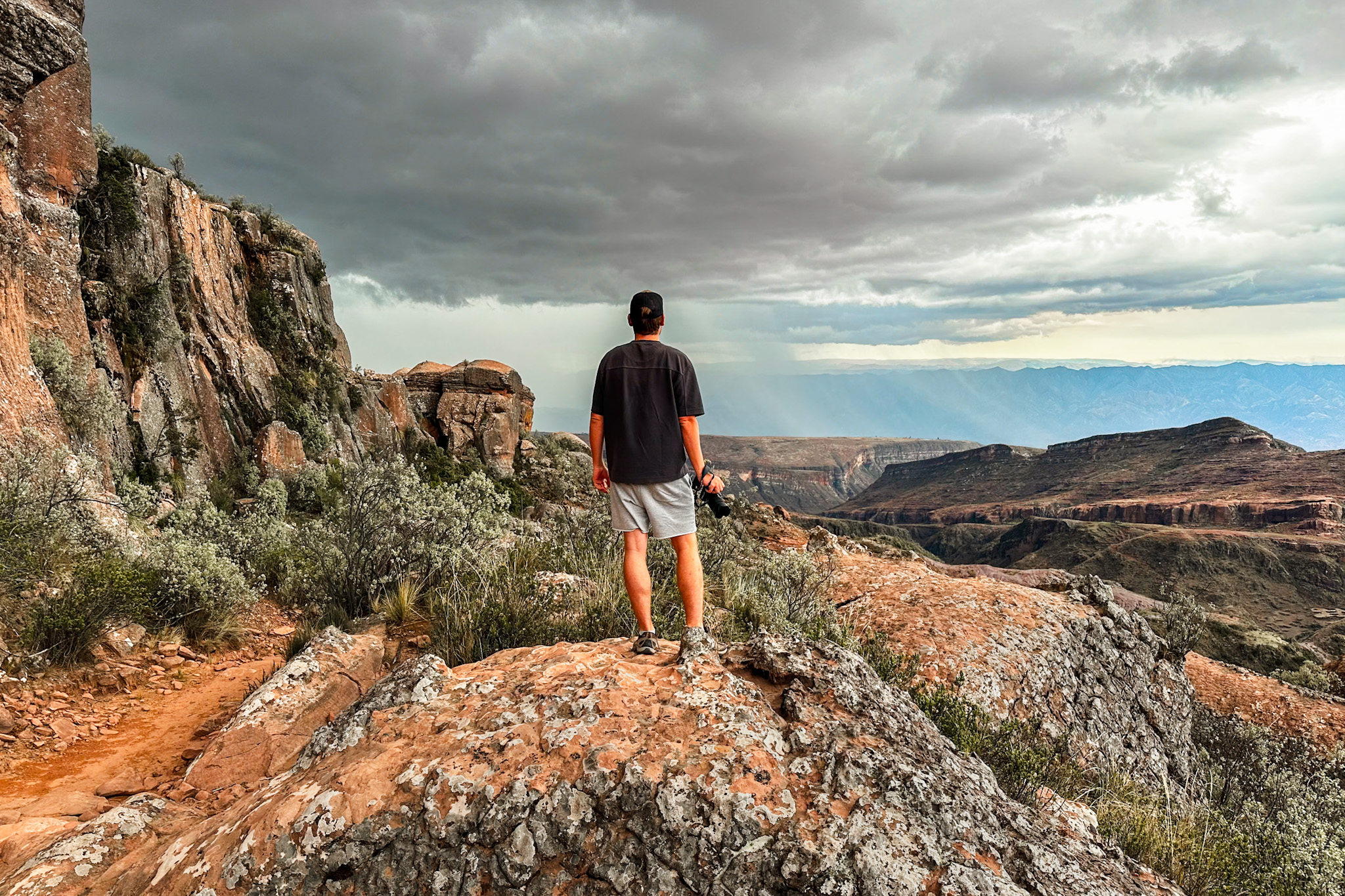
What to see in the Torotoro National Park
The Torotoro National Park has been divided into several circuits (“circuitos”) – specific attractions to visit within one tour. Each circuit takes about 4 hours to complete, which allows you to visit two circuits in a day.
Here are the most popular circuits, to choose from depending on your interest and time spent in Torotoro.
1. Stone City Itas
One of the most popular and spectacular hikes in Torotoro leads you to the stone city of Itas, characterized by massive eroded sandstone formations. Our guide was putting our imagination to the test pretty hard by letting us guess which animals some of these rock formations and caves resemble.
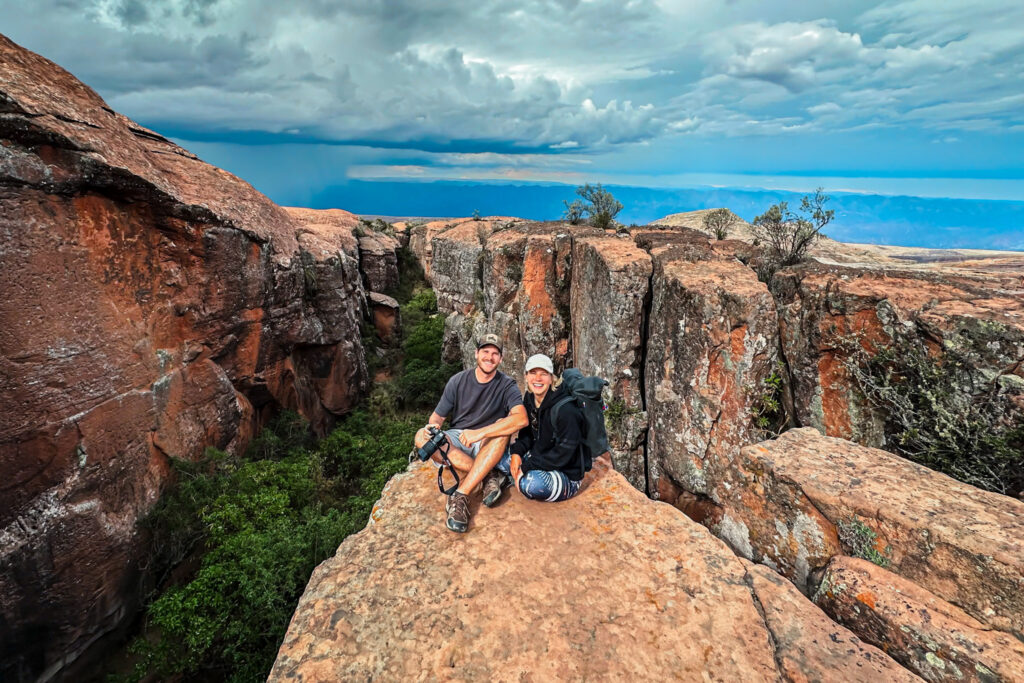
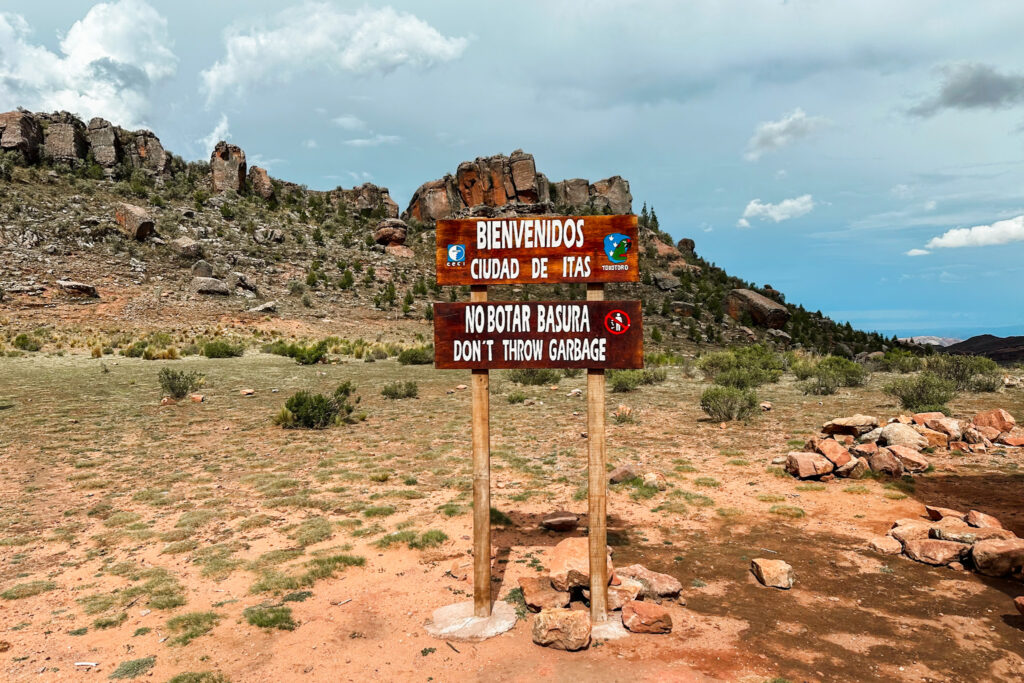
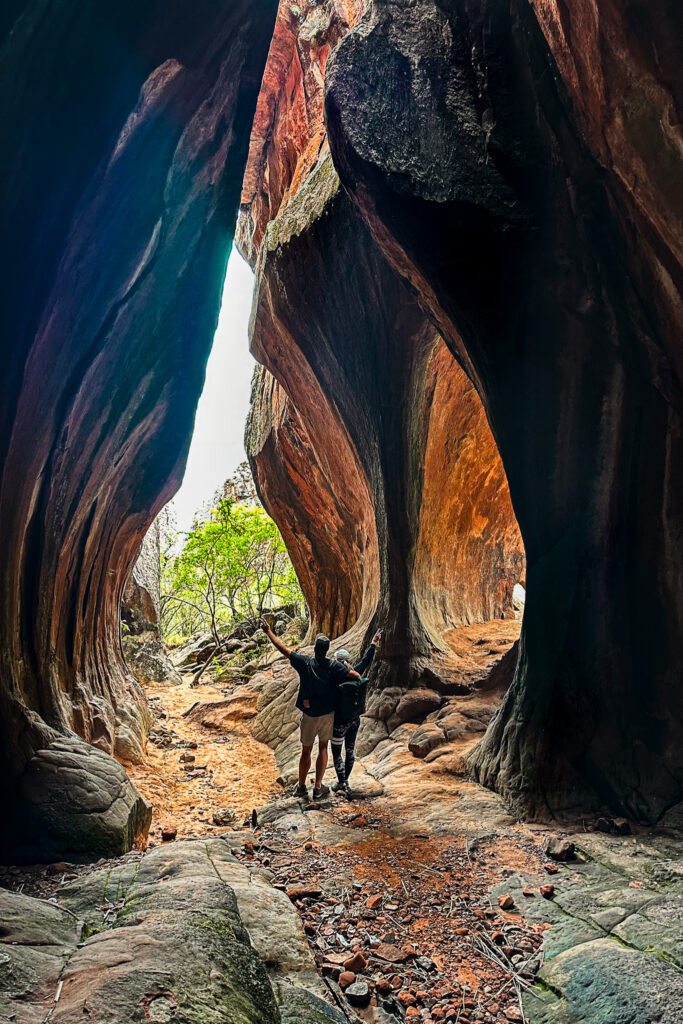
If you’re fortunate with the weather, you’ll be treated to incredible views of the surrounding mountains and the unique geology of the region. Other highlights in Itas include a “cathedral,” ancient cave paintings, and, of course, dinosaur footprints. Unfortunately, as during our visit a thunderstorm hit us (like almost literally!), we had to skip the latter in order to safely reach our car.
The tour through stone city Itas lasts for about 3 hours and includes climbing over and down the rocks, sliding through small slits in the walls. Compared to others, we found this hike to be a rather easy one.
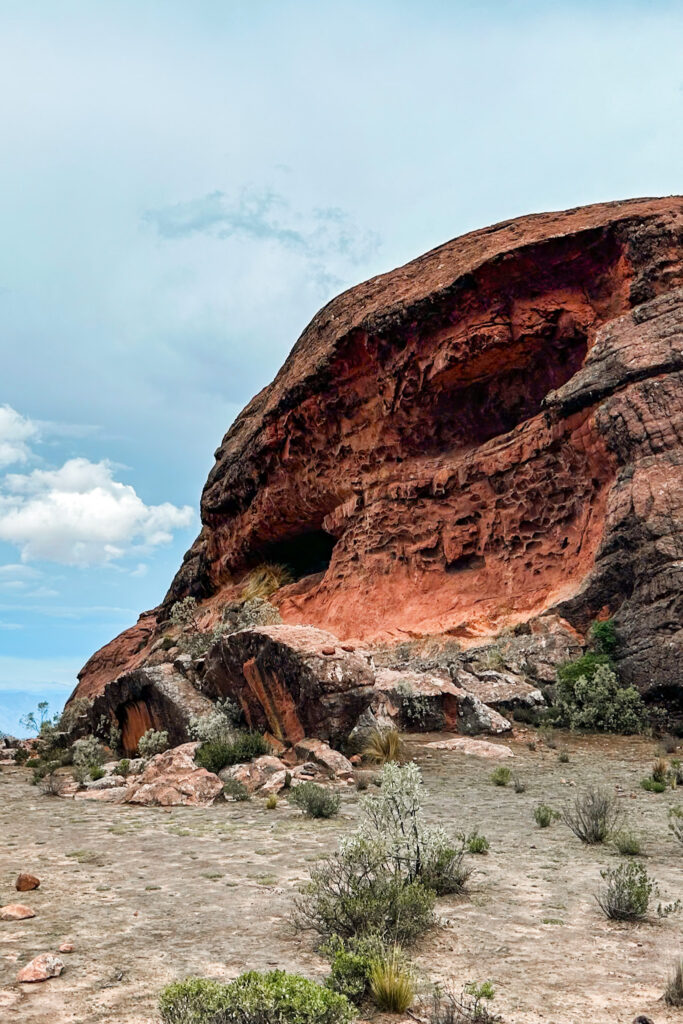
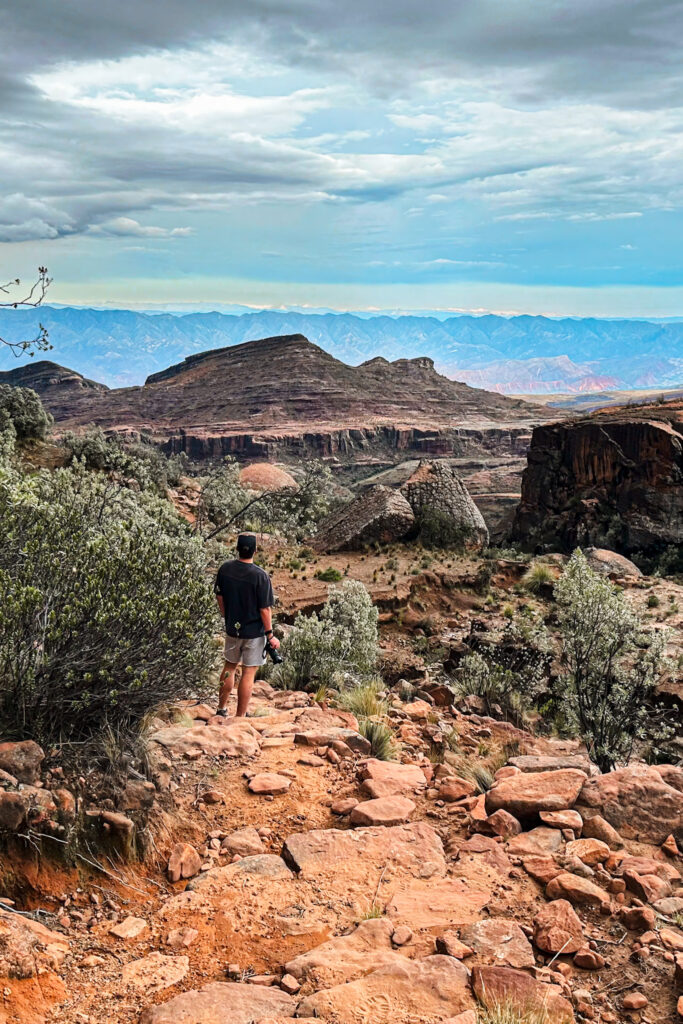
2. Umajalanta Cave
One of the most fun things to do in Torotoro National Park is exploring Umajalanta cave. During the 2-3 hour tour you will dive into the dark underworld of Torotoro. For Jens’ great disappointment (he is a great fan of caves), Umajalanta was under maintenance at the time we were there and we, unfortunately, could not visit it. But we are excited to hear about your experiences in the comments, in case you made it.
Be aware, that the tour can get challenging as there is a lot of sliding, climbing, and crawling involved. For your safety, your guides will provide you with a helmet and a headlamp. Also, be prepared for your clothes to get dirty and wet. But that’s what a real cave adventure is about, right?!
Umajalanta Cave is often combined with the tour to the Stone City Itas to save on transportation costs.
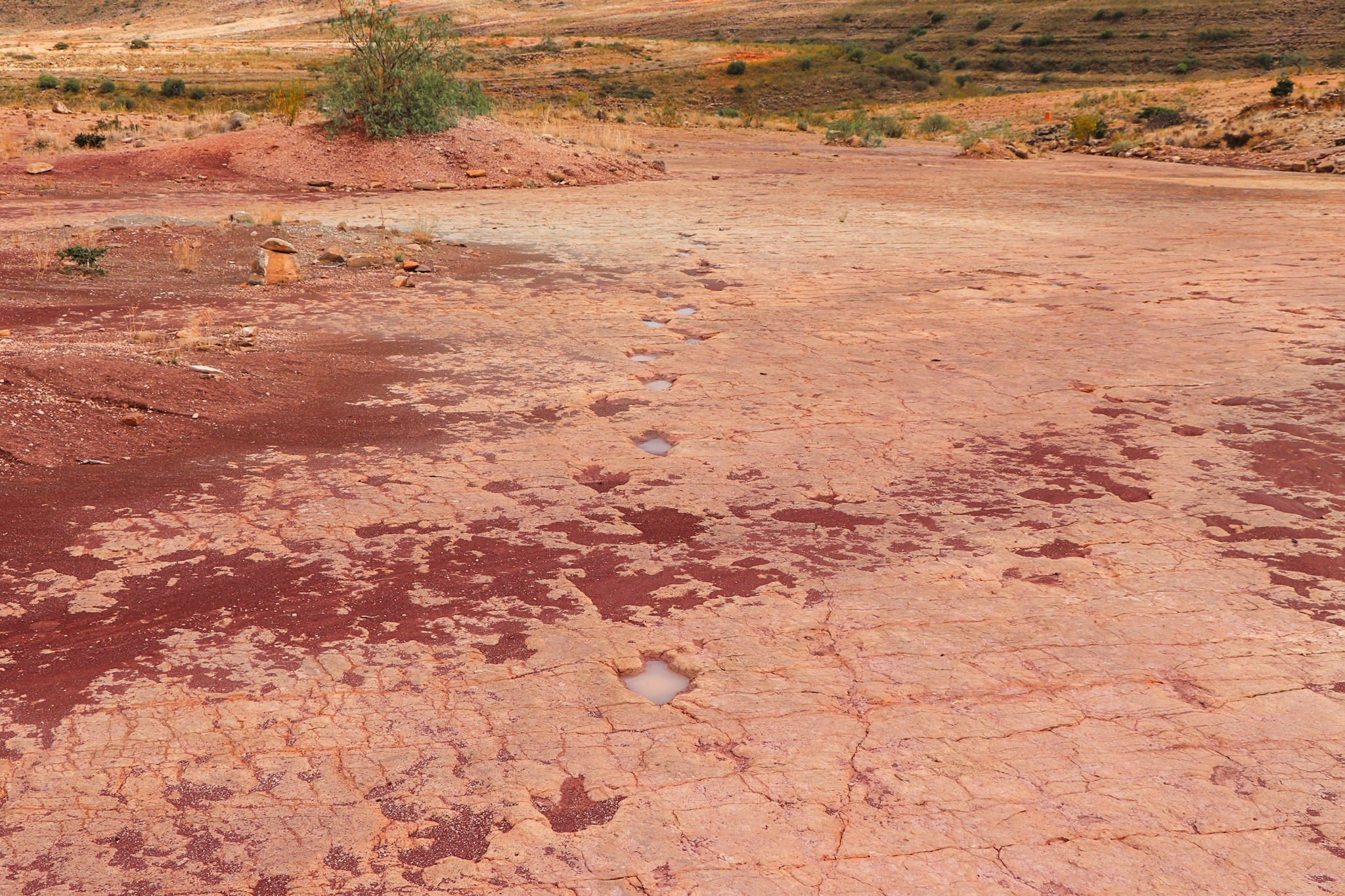
3. Torotoro canyon and El Vergel waterfall
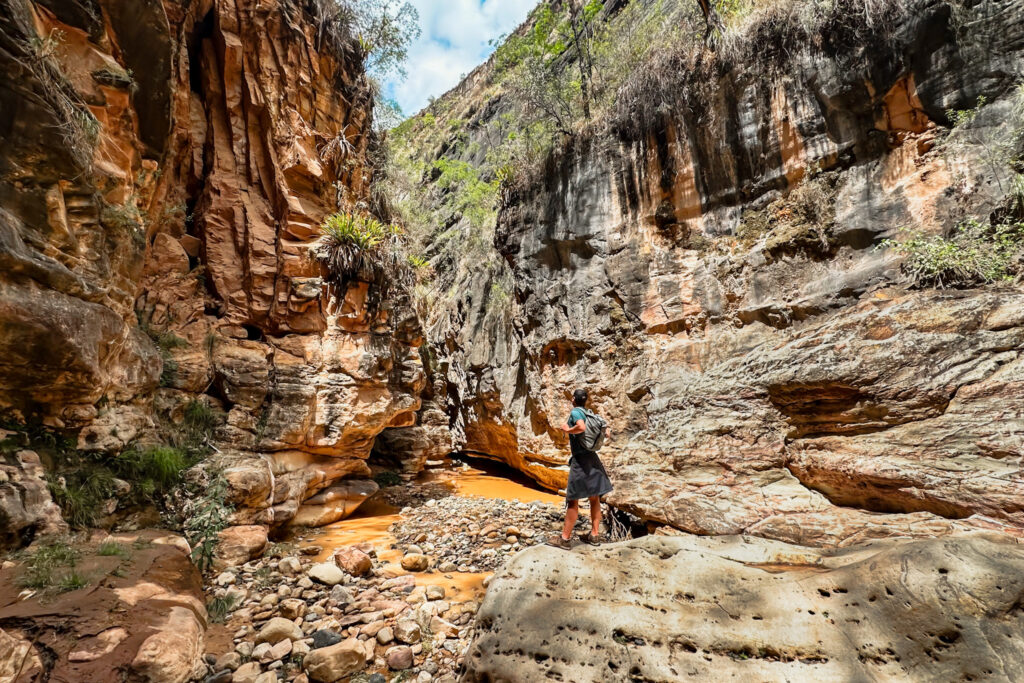
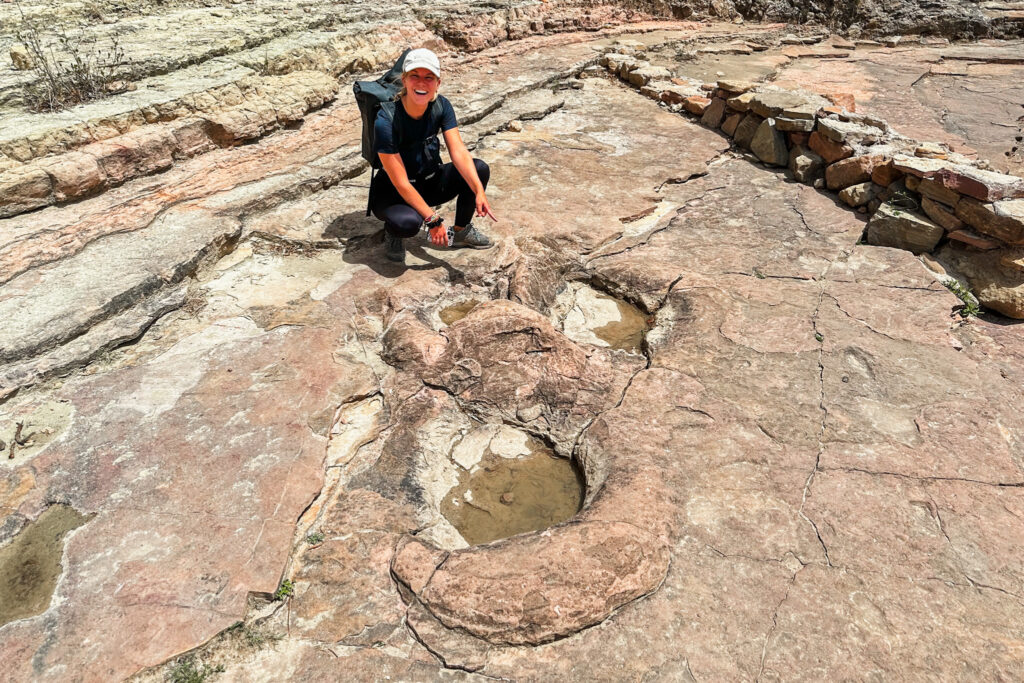
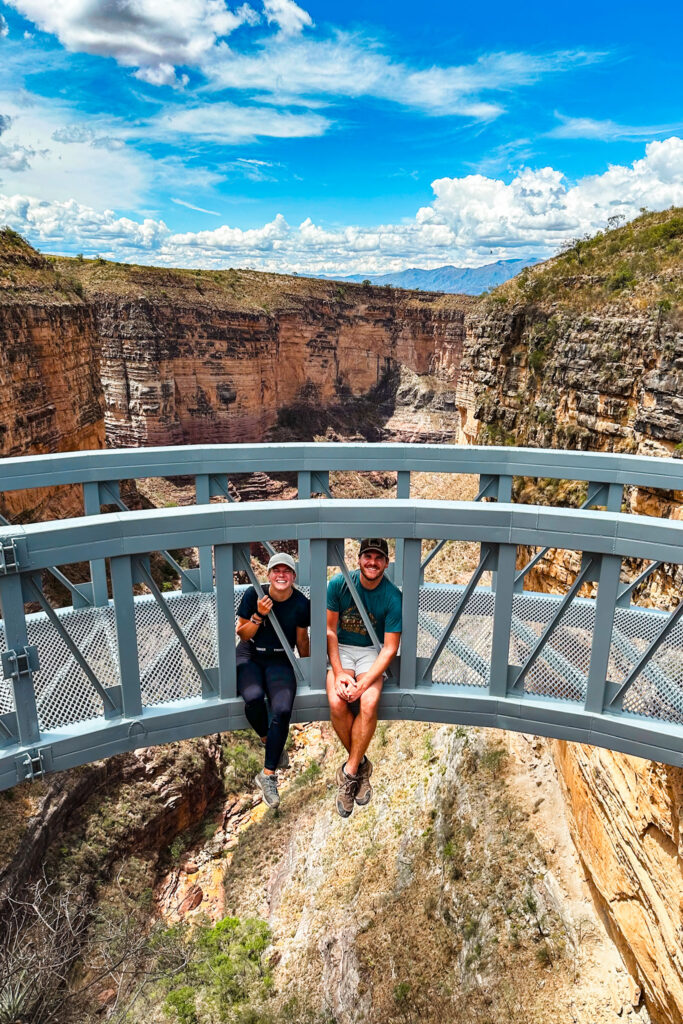
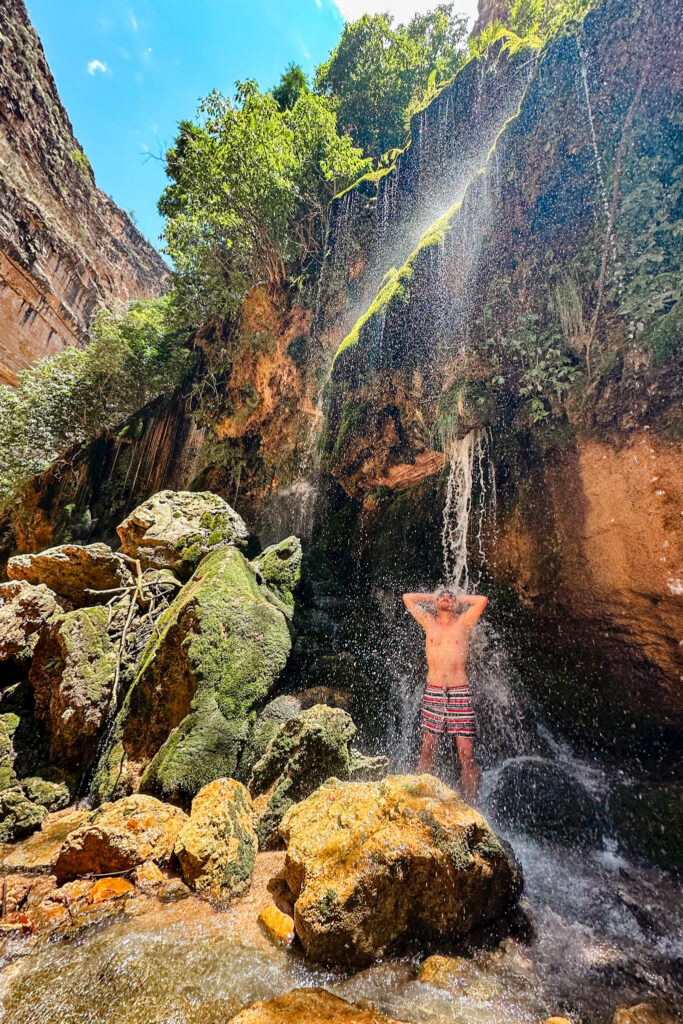
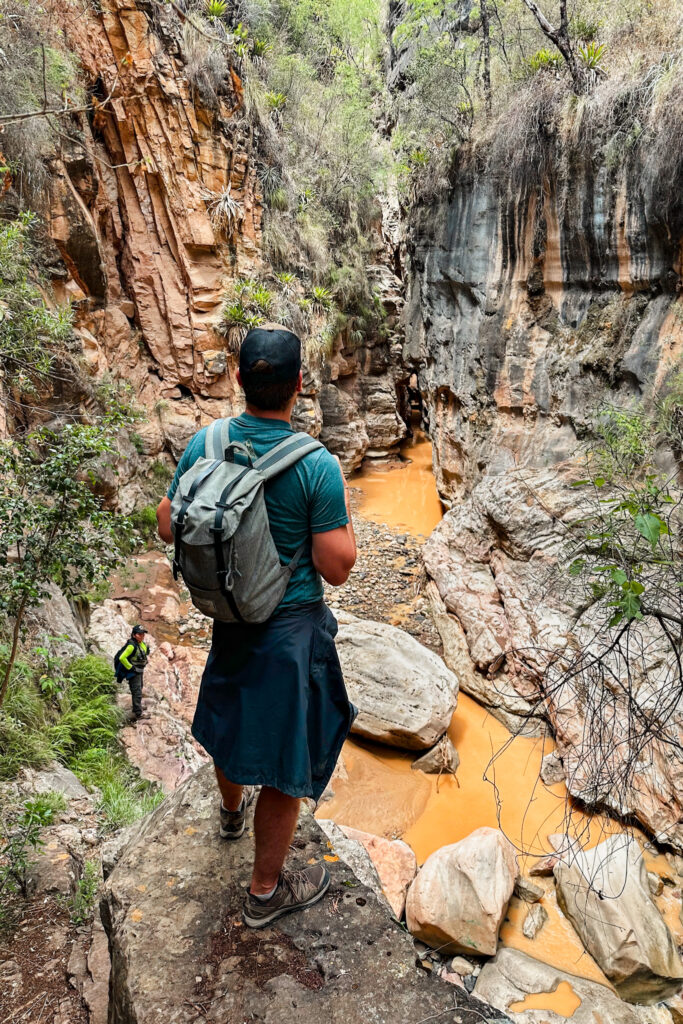
This hike also has a longer version. Since we could not go to Umajalanta cave due to it being closed, we started our tour with looking for dinosaur footprints in Carreras Pampa first, acrossing the Smurf Village with small funny mushroom-shaped stone formations to descend to the canyon way further away from the waterfall. This tour took us about 6 hours to complete and was so much fun!
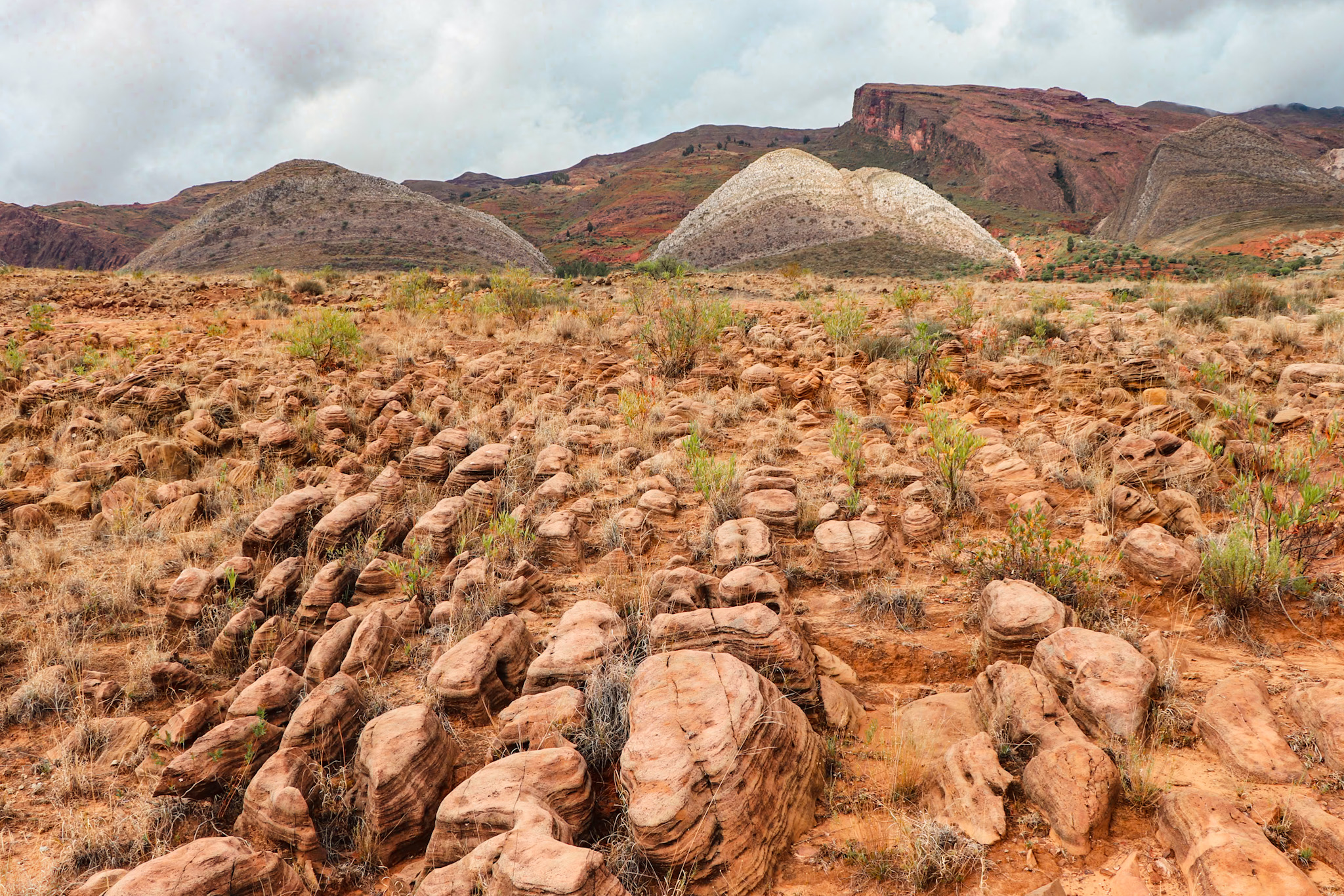
How to get to the Torotoro National Park?
While Torotoro lies within the state of Potosi, you can only get there via the city of Cochabamba. Although Cochabamba, one of Bolivia’s largest cities, offers a few intriguing attractions, such as a Christ statue surpassing the size of Rio’s Christ the Redeemer, it’s not commonly visited by tourists. As a result, expect to venture off the beaten path to reach the Jurassic Park of Torotoro.
Relevant Reading
The colectivos to Torotoro leave between 5 a.m. and 6 p.m. from the corner of Valley Grande and Avenida Republica (see the location on Google Maps here) in Cochabamba. The ticket costs only 35 BOB (≈ 5 USD) and, since the new highway is now ready, the journey takes about 3 hours.
You will easily recognize the right colectivos as they have dinosaur stickers on it. However, be prepared that since the colectivo only leaves when full, it may take up to 2 hours for the bus to fill up in the morning. If you want to get to Torotoro for the afternoon tour, make sure to jump on a colectivo as early as possible.
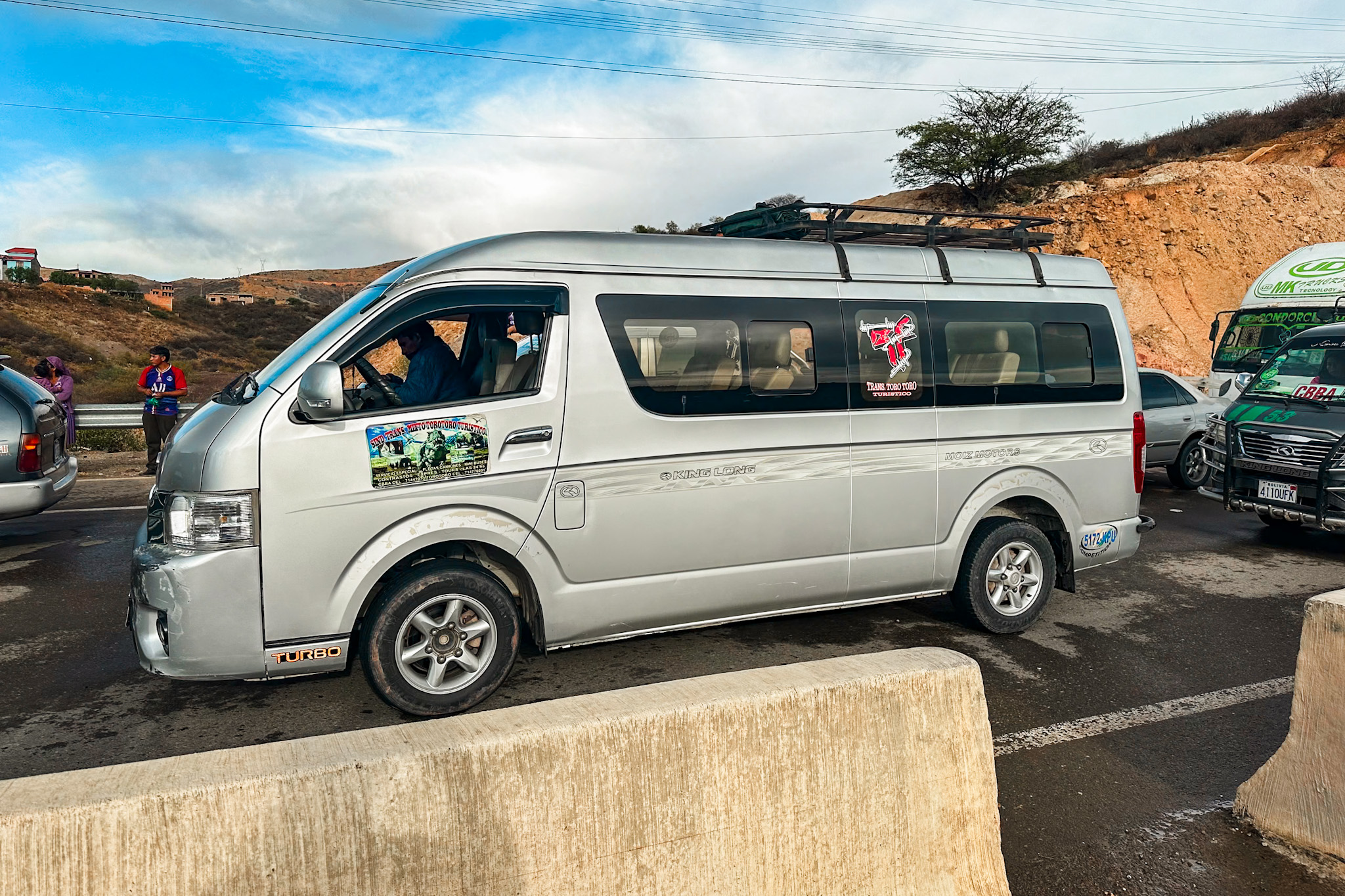
How to best visit the Torotoro National Park?
Having a guide is mandatory when visiting Torotoro National Park. It may sound disappointing for the ones who like to explore independently, however, we found it truly necessary here. There are no marked hiking trails in Torotoro, so you’ll need a guide to navigate the challenging terrain safely.
There are two options for guided visits in Torotoro National Park. You can book an all-inclusive tour from Cochabamba or just book a guide for your expeditions directly in Torotoro village, arranging your transportation, accommodation, and meals on your own.
While the second option could save you a few bucks during the high season, we decided to book an all-inclusive tour. Since hiring a guide for one circuit in Torotoro village costs 160 BOB (≈ 24 USD) to 300 BOB (≈ 45 USD) and we were not sure whether we could share the price with other travelers, due to traveling in the low-season, we found the value of an organized tour worth the price.
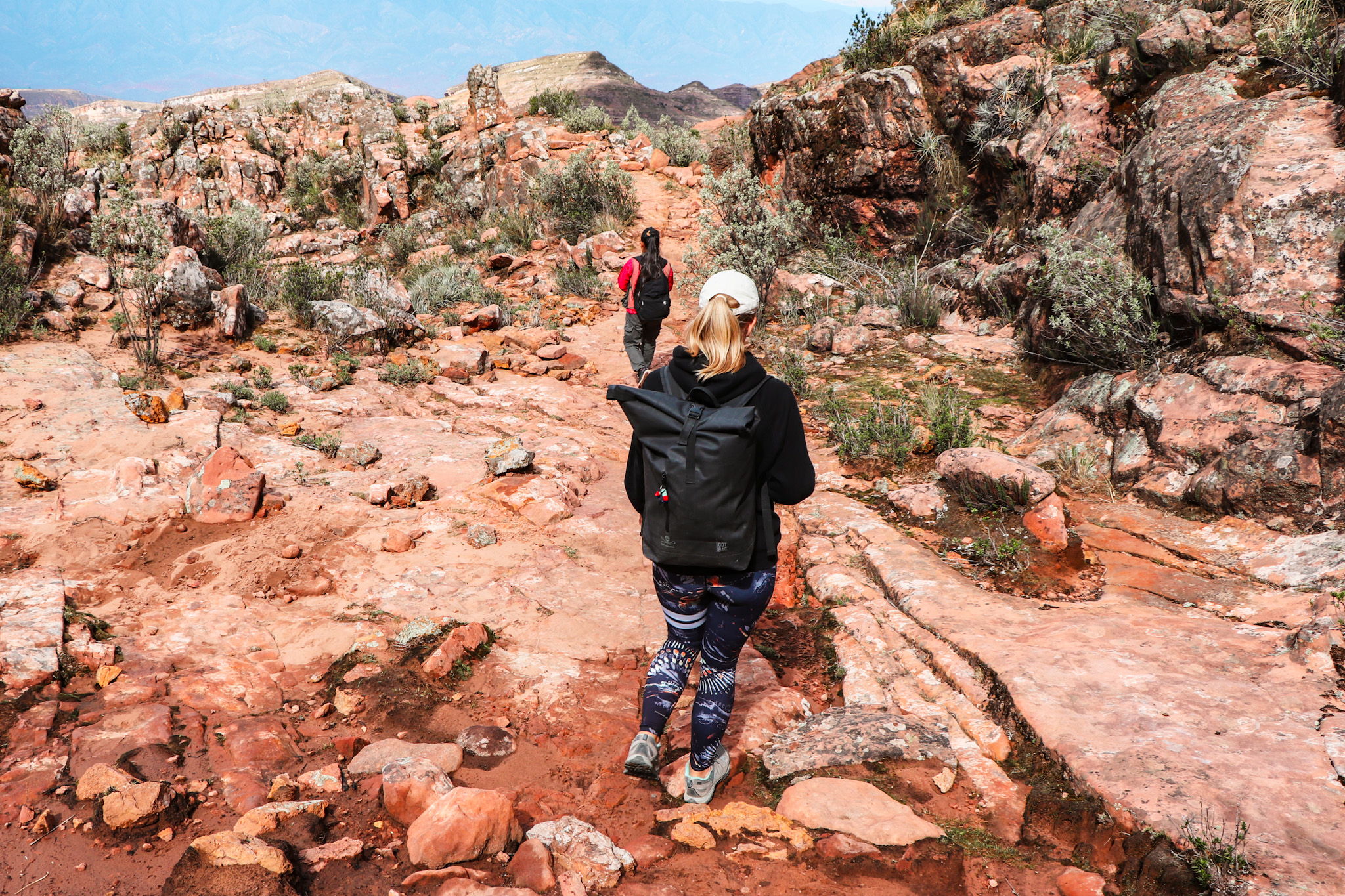
We paid for our 2D/1N shared tour from Cochabamba 590 BOB (≈ 89 USD) per person. It included a room in the mid-price-range hotel, full board, transportation to and from Torotoro, an entrance ticket, and a guide for 3 circuits. And since the others canceled very last minute, we had a private tour!
However, that also came with some downsides: We weren’t sure if the tour would take place until the evening before (so we were prepared to do the whole thing on our own) and had only Spanish-speaking guides.
For your planning, however, expect to pay double the price for a private tour, as chances are that your shared tour will be canceled if they don’t get other tourists to book. We did our tour with Vision Tours Bolivia, one of the few tour operators in Cochabamba. You can book their tours in their Cochabamba office a couple of days before, or online to play it safe:
Recommended Tour
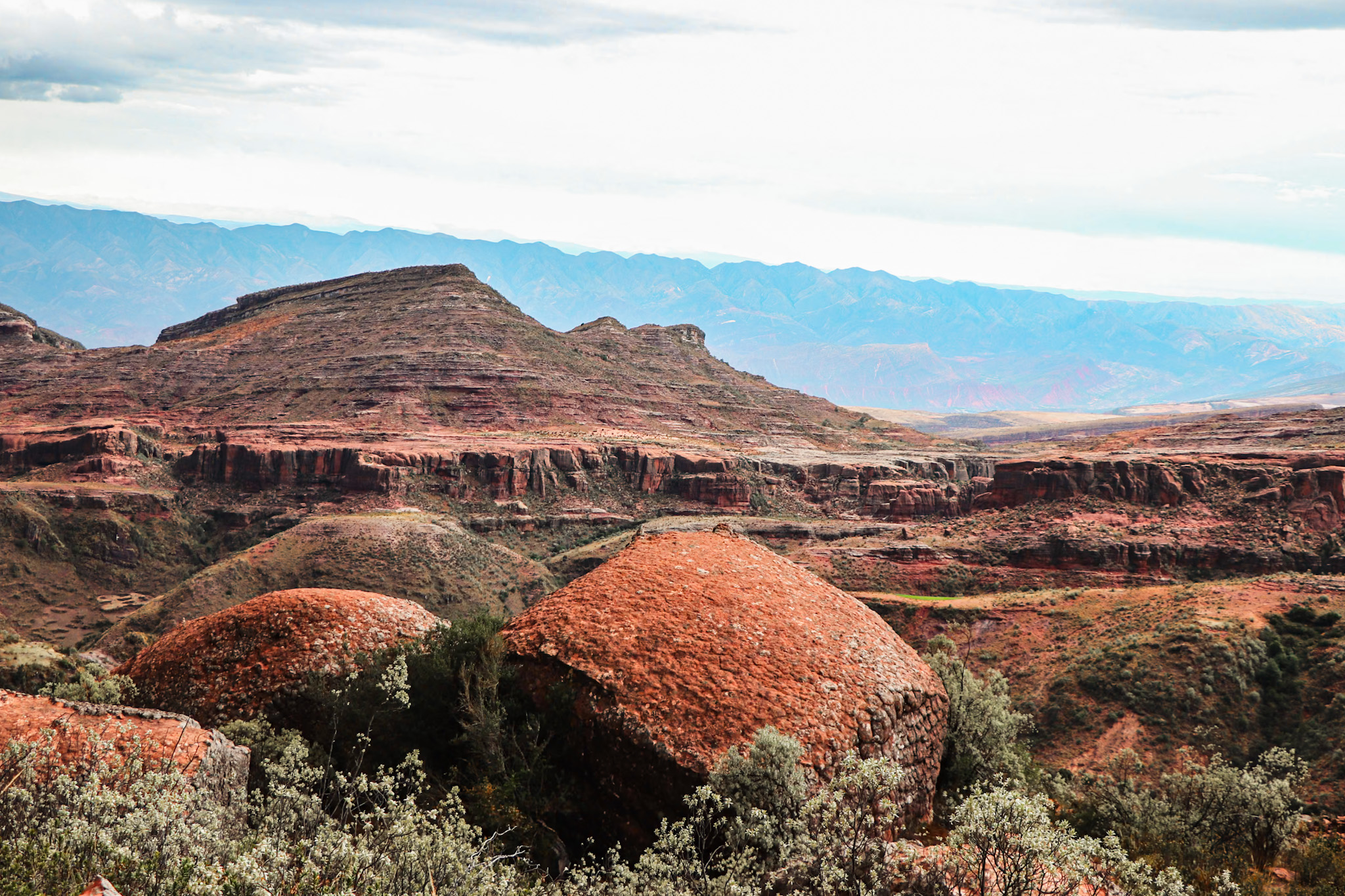
How to hire a guide for Torotoro National Park?
Before you can hire your guide for the circuit tour, you will first have to pay the park entrance fee of 100 BOB (≈ 15 USD) at the Tourist Office (Oficina de Turismo) which is valid for 4 days. After that, you head next door to the Casa de las Guias where you choose your circuit. Visiting each circuito costs 160 BOB (≈ 24 USD) to 300 BOB (≈ 45 USD) per group, plus extra transportation fees to the Stone City Itas and Umajalanta cave.
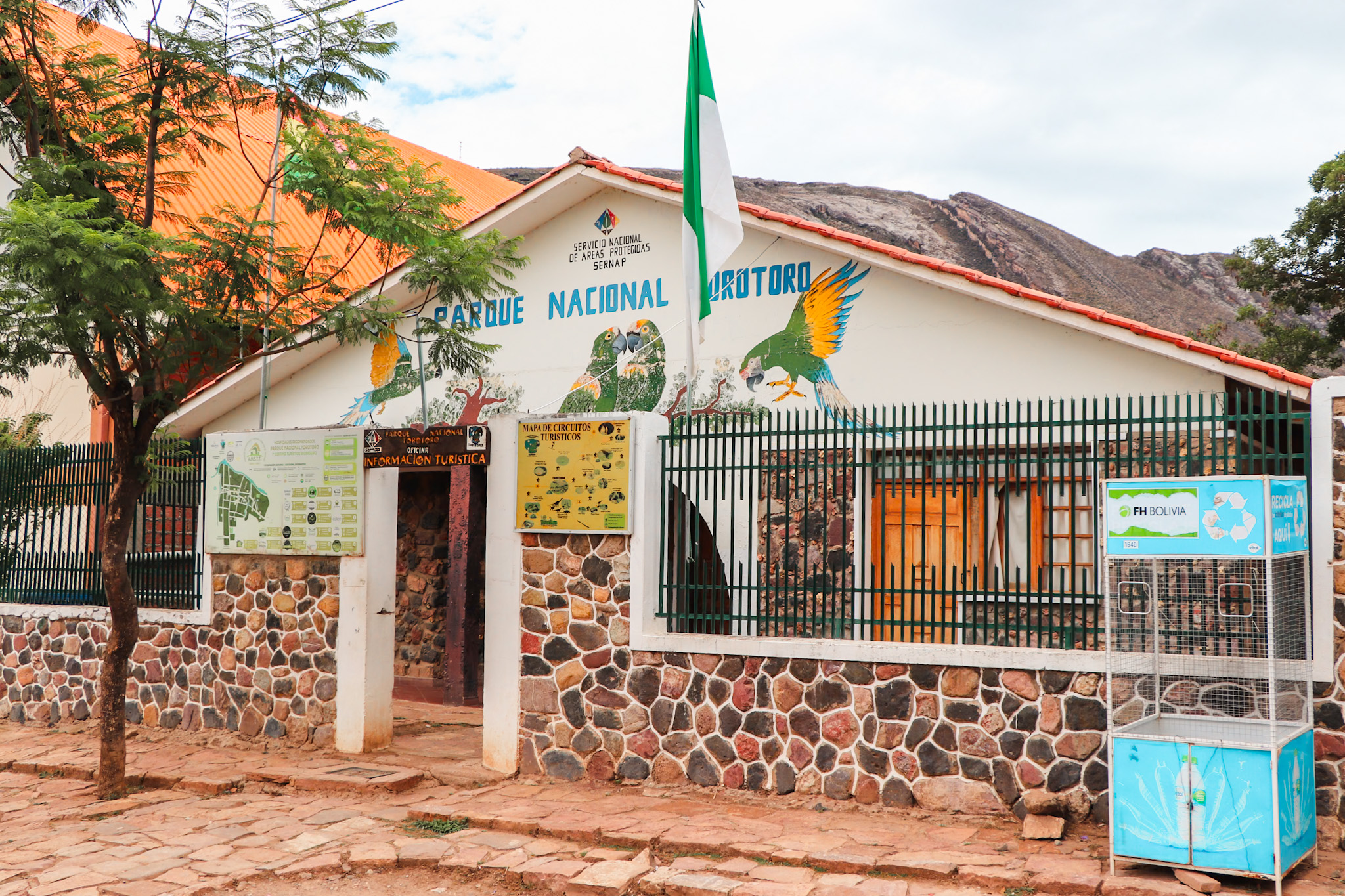
You can have a maximum of 6 people in a group. So speak to other travelers in the office to form a full group to bring the cost down. With that, you would only pay 27 BOB (≈ 4 USD) per person. To improve your chances of getting a full group, arrive in the office at 7:30 a.m. for the morning tour and 1:30 p.m. for the afternoon tour, or even better, ask fellow travelers in your hostel the day before.
Important to know is that the guides only speak Spanish. As we had been traveling South America for a few months by then, we felt confident enough to understand the basics and it was indeed enough to get through the hikes without any issues. If you prefer having an English-speaking guide, you’re best off looking into the far pricier all-inclusive Torotoro tours from Cochabamba.
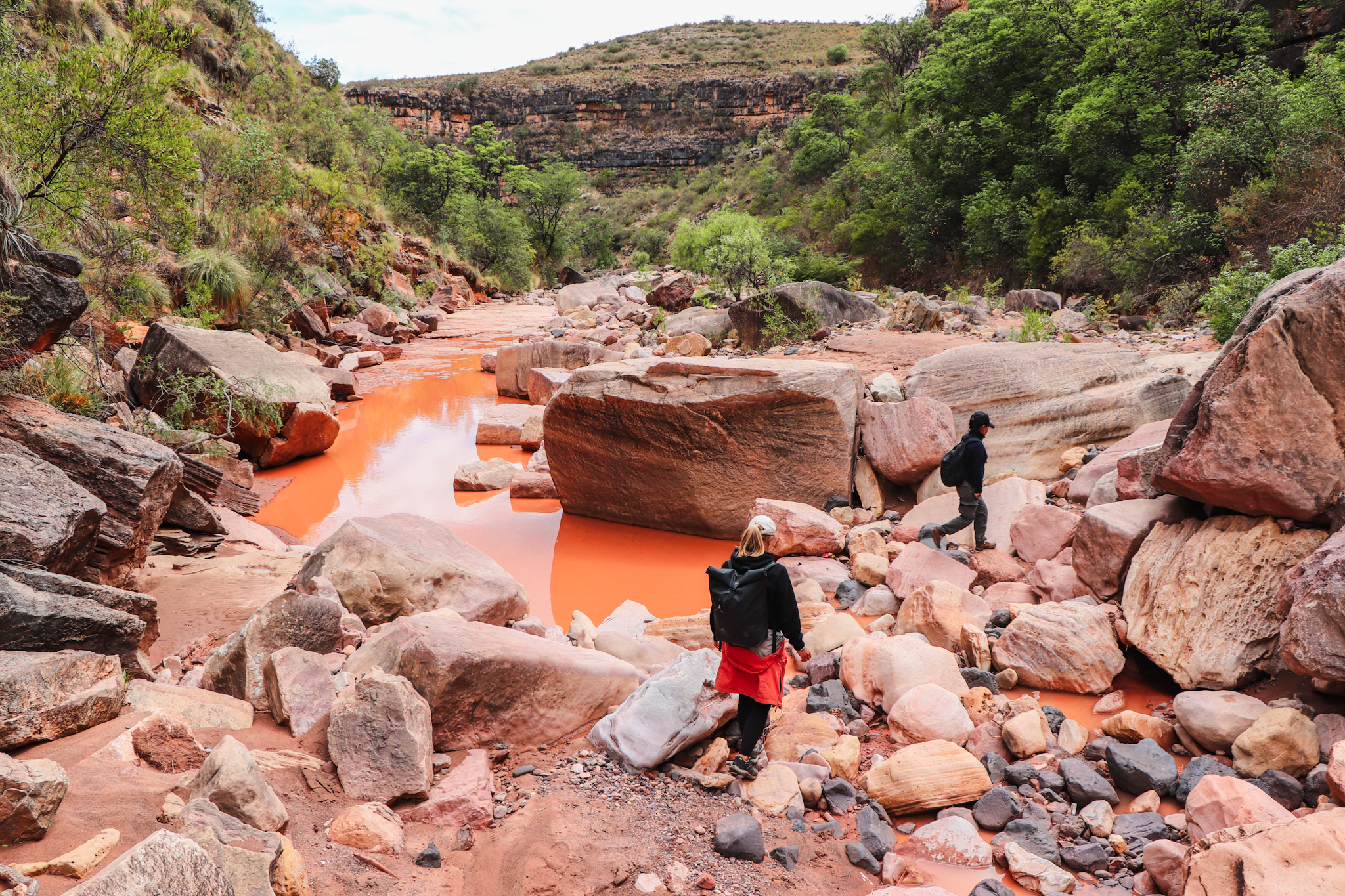
How many days to stay in Torotoro?
When joining an organized tour from Cochabamba, we found 2D/1N to be enough. But if you plan on traveling on your own to Torotoro, we recommend you spend a minimum of two nights. Here’s why.
You could technically get the earliest mini-bus, do the first tour on the afternoon that day, stay the night, do two tours on the next day, and try to catch the last colectivo to Cochabamba. But we believe it would be too rushed and you would have no flexibility in case the colectivo won’t fill fast enough on the first day or any of the tours would take longer. With two nights in Torotoro, the long journey would be more worth the hassle.
Once back in Cochabamba on the third day, you have the choice to stay another night or hop onto a night bus to La Paz, Uyuni or Sucre.
Relevant Reading
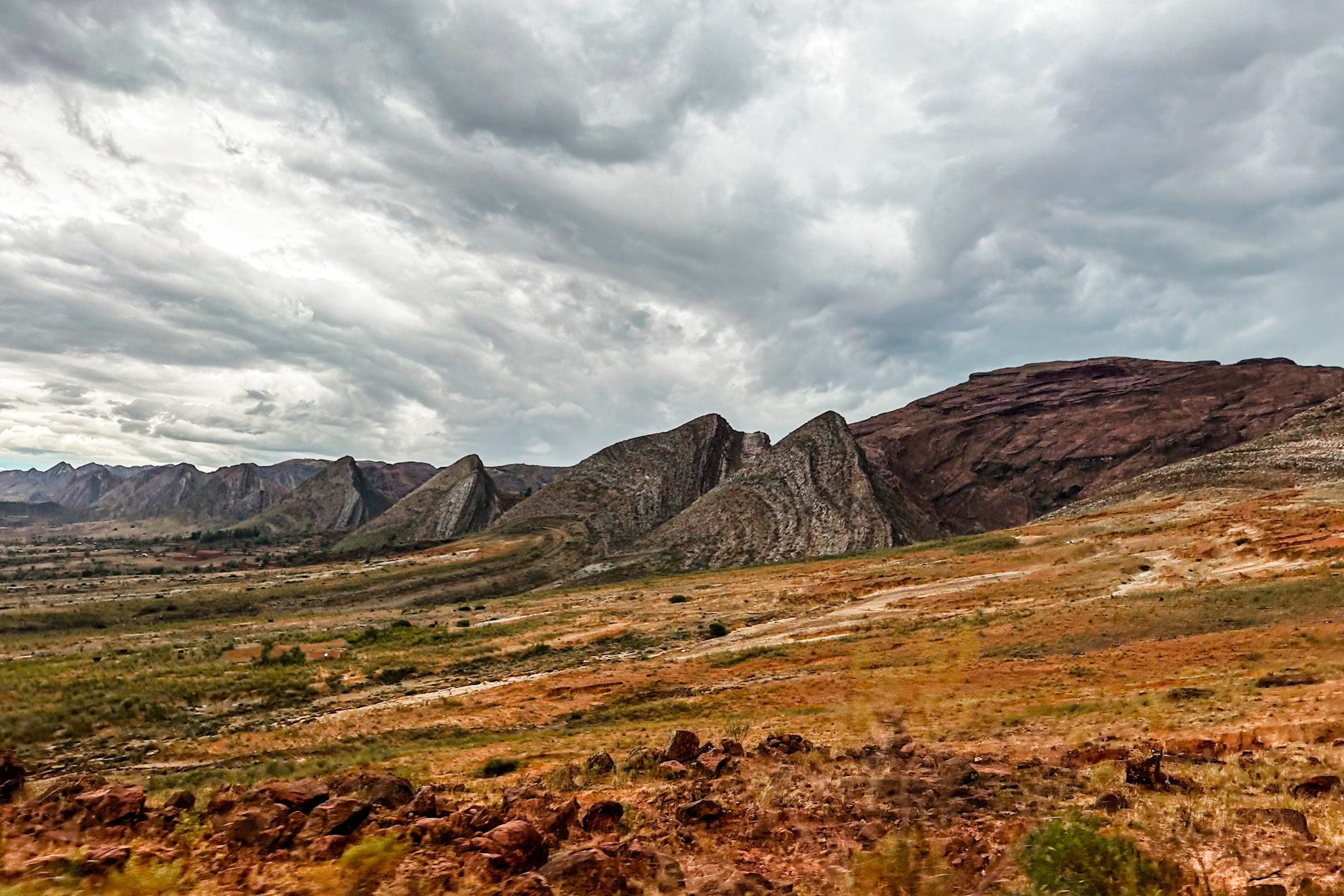
Where to stay in Torotoro?
Since not so many tourists find their way to Torotoro, the accommodation options in the Torotoro village are still limited. Basic guesthouses and homestays are available but don’t expect anything too fancy. Often the accommodations don’t have any hot water or internet.
Here are a few recommendations for your stay:
Where to eat in Torotoro?
Also the restaurant options in Torotoro village are limited, with only a few to choose from:
Vergel Jurásico
- International
- Budget
Café Cretácico
- French / Bolivian
- Moderate
For some great flavors from France and Bolivia and a nice dining in the backyard, this is your place to go. Great Raclette, good beers, and nice wines.
Encuentro Torotoreño
- Bolivian
- Moderate
A lovely small restaurant, decorated as a cave and filled with fossils. Great authentic Bolivian food.
What to pack for Torotoro National Park?
We only stayed one night in Torotoro and luckily could leave our big backpacks at the hostel in Cochabamba without any extra cost. Depending on how long you stay, you might want to do the same.
When packing for Torotoro, we recommend bringing layers since even though Torotoro is located in the tropics, temperatures high in the mountains can drop at night. In case you will be traveling during the wet season, definitely pack your rain jacket and lots of change clothes, as they barely dry overnight.
Also, good hiking boots are essential. You will walk along rocky paths, through rivers and clay patches. Sturdy boots will make your experience so much more convenient and safer.
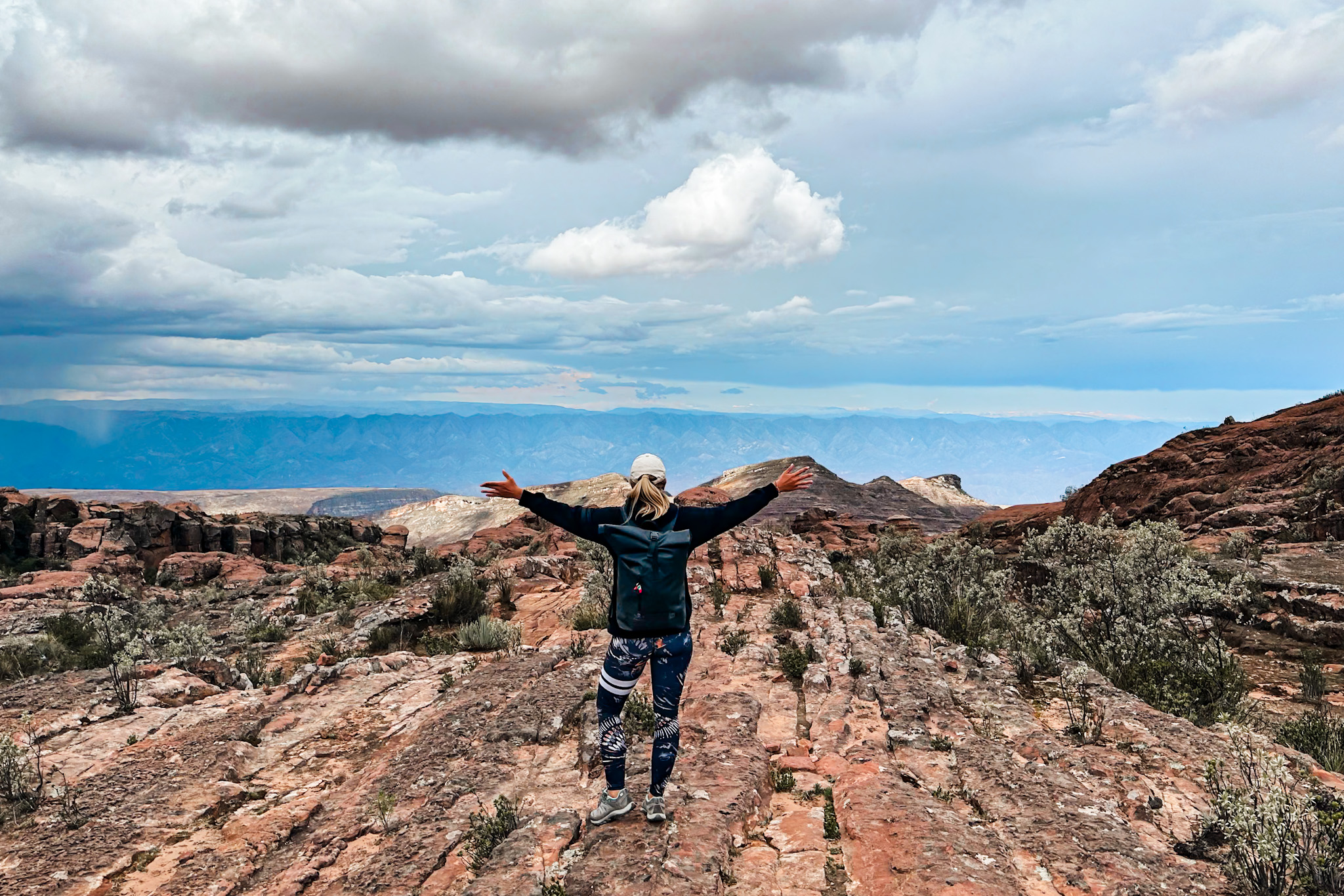
Don’t forget to bring lots of sun protection and also water to your hikes as there is no possibility to buy some in the national park. And in case you plan on swimming in El Vergel waterfall, remember to pack a swimsuit and a towel.
Torotoro does not have an ATM. Therefore, it is very important that you plan your expenses and bring the necessary amount in cash.
Here’s a list of essential things to pack:
When is the best time to visit Torotoro National Park?
For the best hiking experience, you want to visit Torotoro during the dry season (from May to October) when there are low chances of rain. In case you are traveling during the rainy season, you might get lucky with the weather, but be prepared to get wet and some of the circuits, such as the Umajalanta cave to be closed.
During our visit to Torotoro in December, it wasn’t the rain that concerned us, but rather a thunderstorm that approached during our first tour to the Stone City. We were atop the highest mountain in the region, with no shelter from the lightning strikes. Fortunately, we safely returned to the car. However, it‘s better to reconsider your tour plans if you see a thunderstorm coming on your way.
Is going to Torotoro National Park worth it?
Visiting Torotoro National Park requires stepping off the traditional gringo trail and reserving a few extra days in your Bolivia itinerary to make your way to this small village in the middle of nowhere. However, it is a true hidden gem, worth every extra mile.
The dinosaur-themed Torotoro pueblo is lovely and tranquil, a perfect place to get to know life in the Bolivian countryside. You’ll hardly find other travelers here.
And the Torotoro National Park itself is simply stunning. And next to perfectly preserved dinosaur footprints from millions of years ago the untouched otherworldly nature left us in awe. There are several tours you can take to some beautiful and unique sights such as the Umajalanta Caves and Torotoro Canyon.
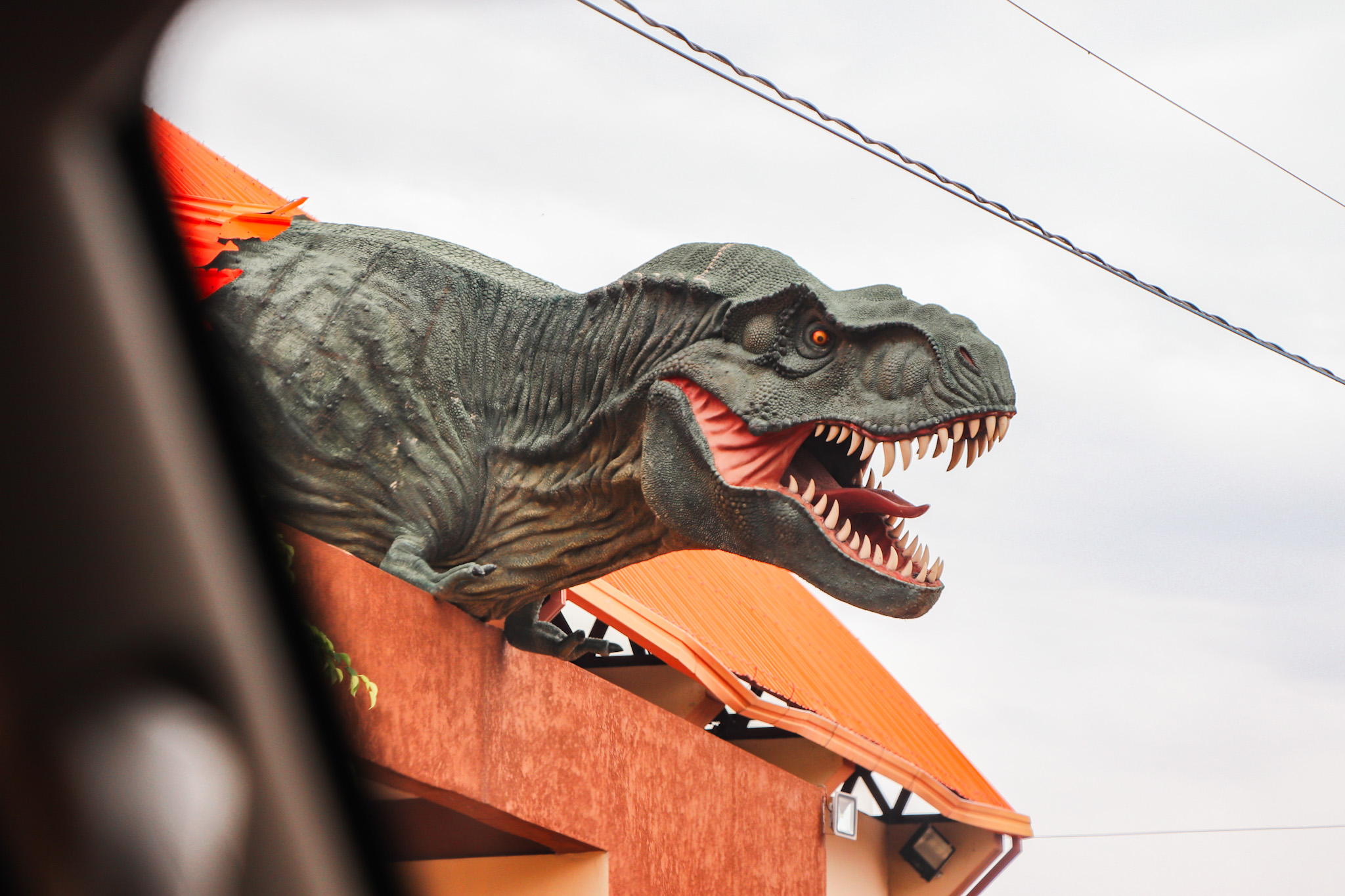

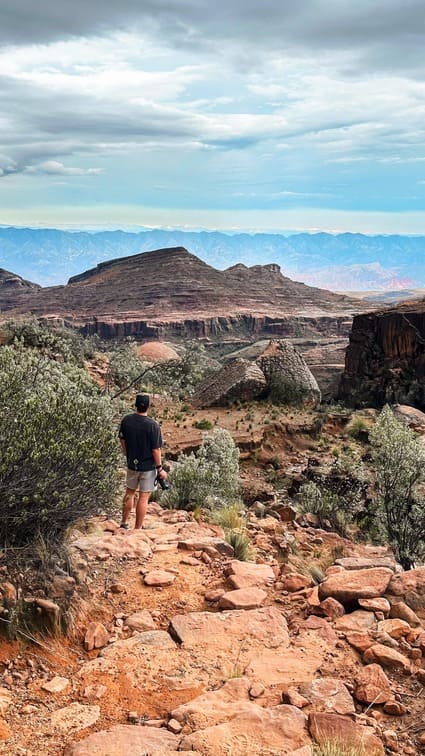
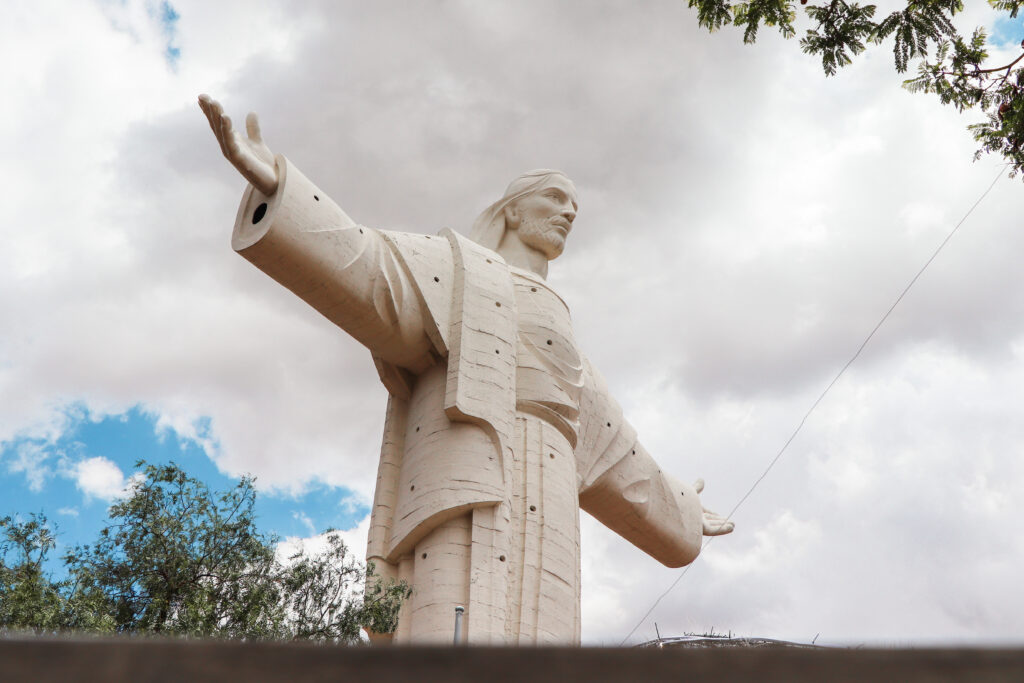
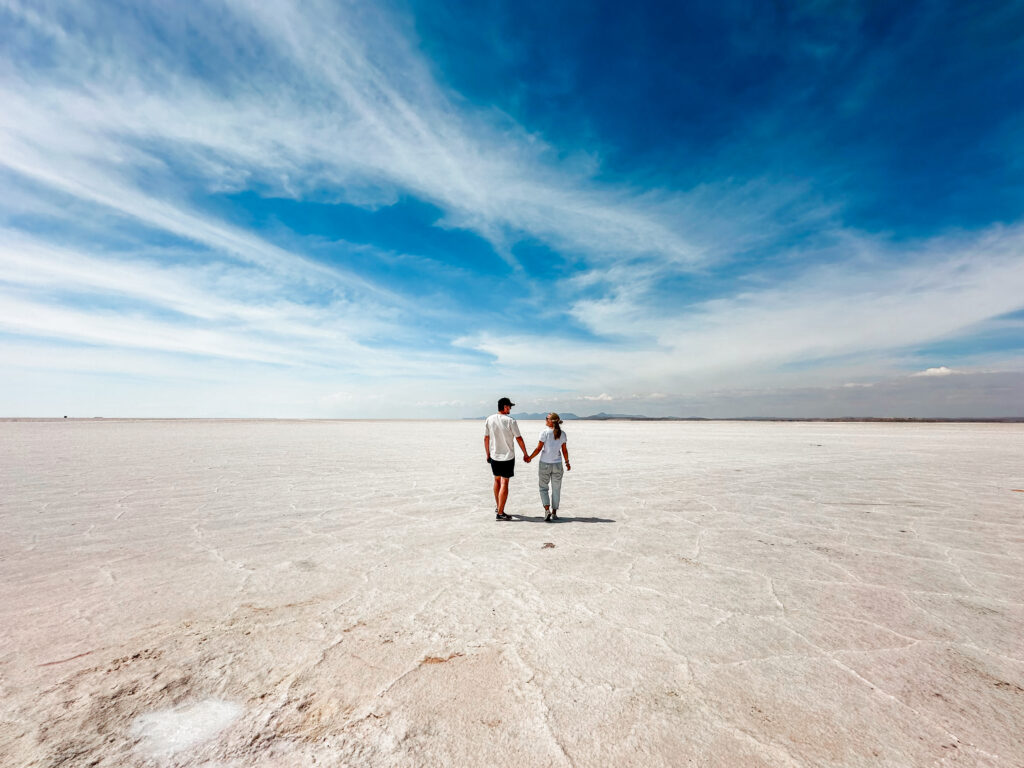
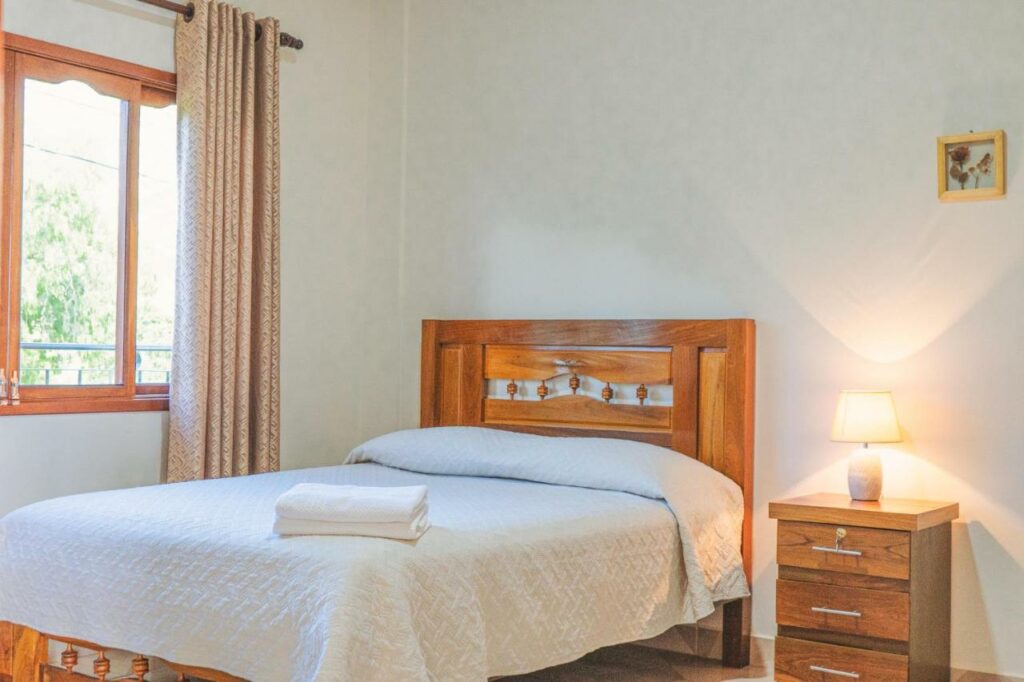
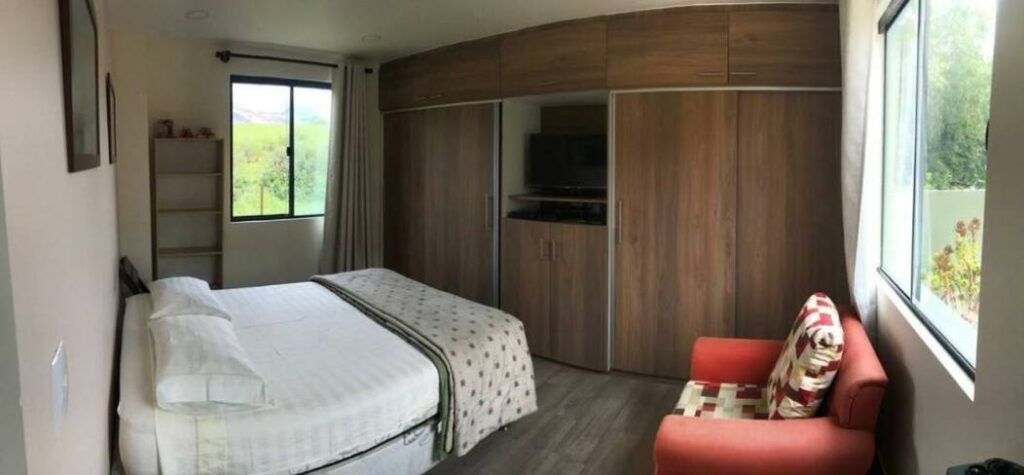
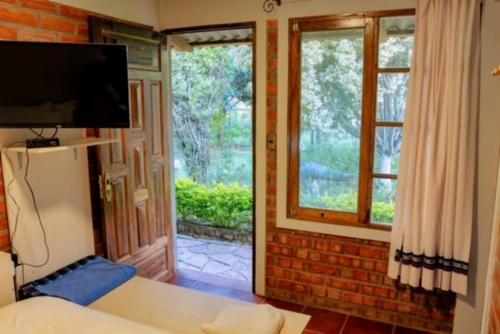
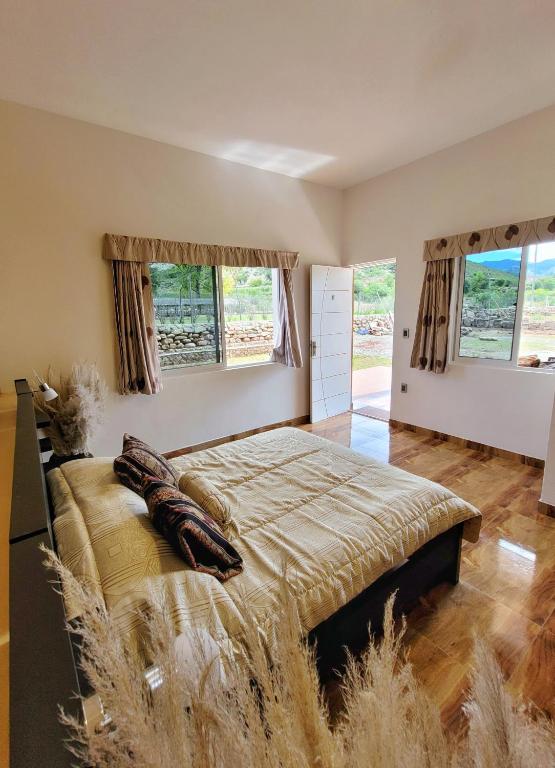
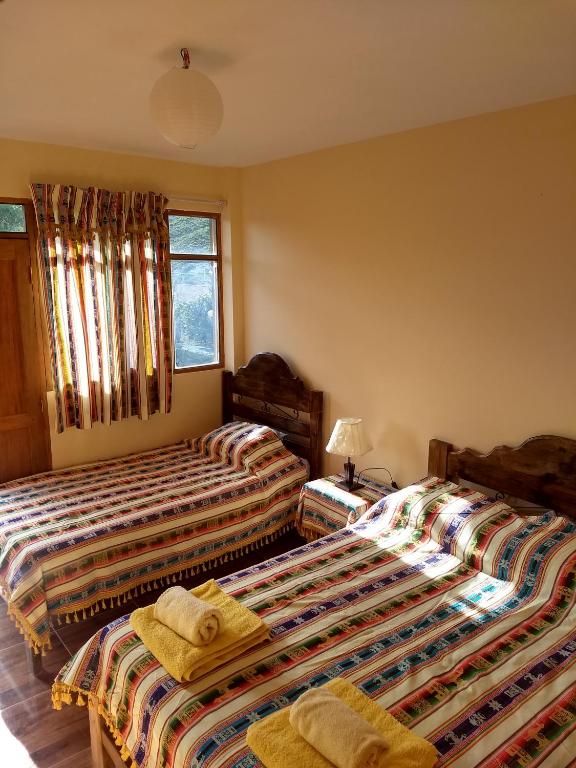
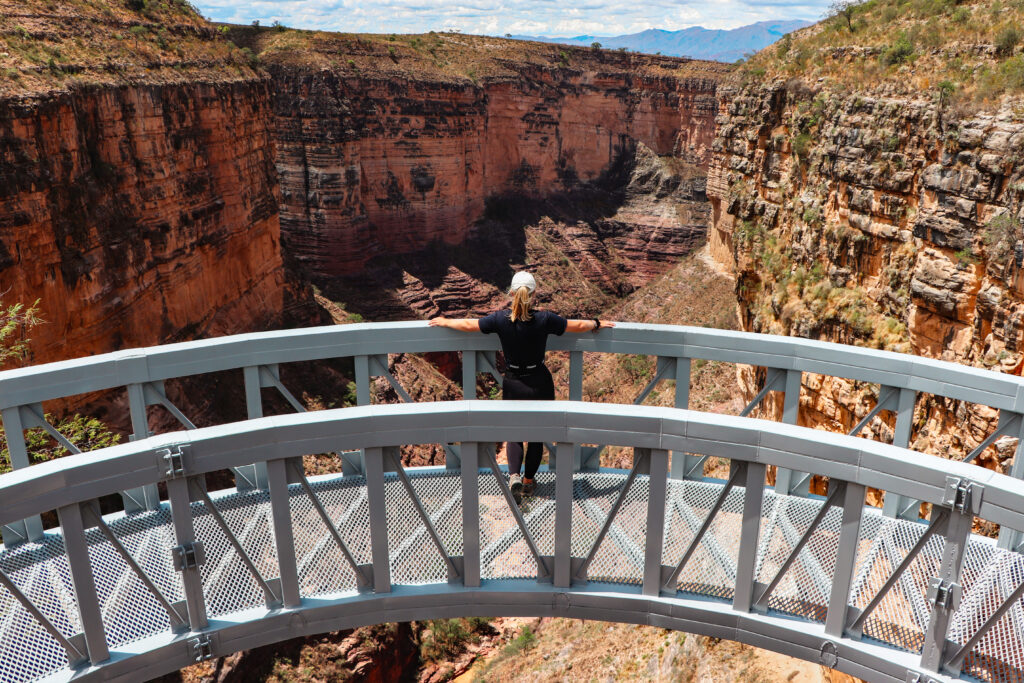
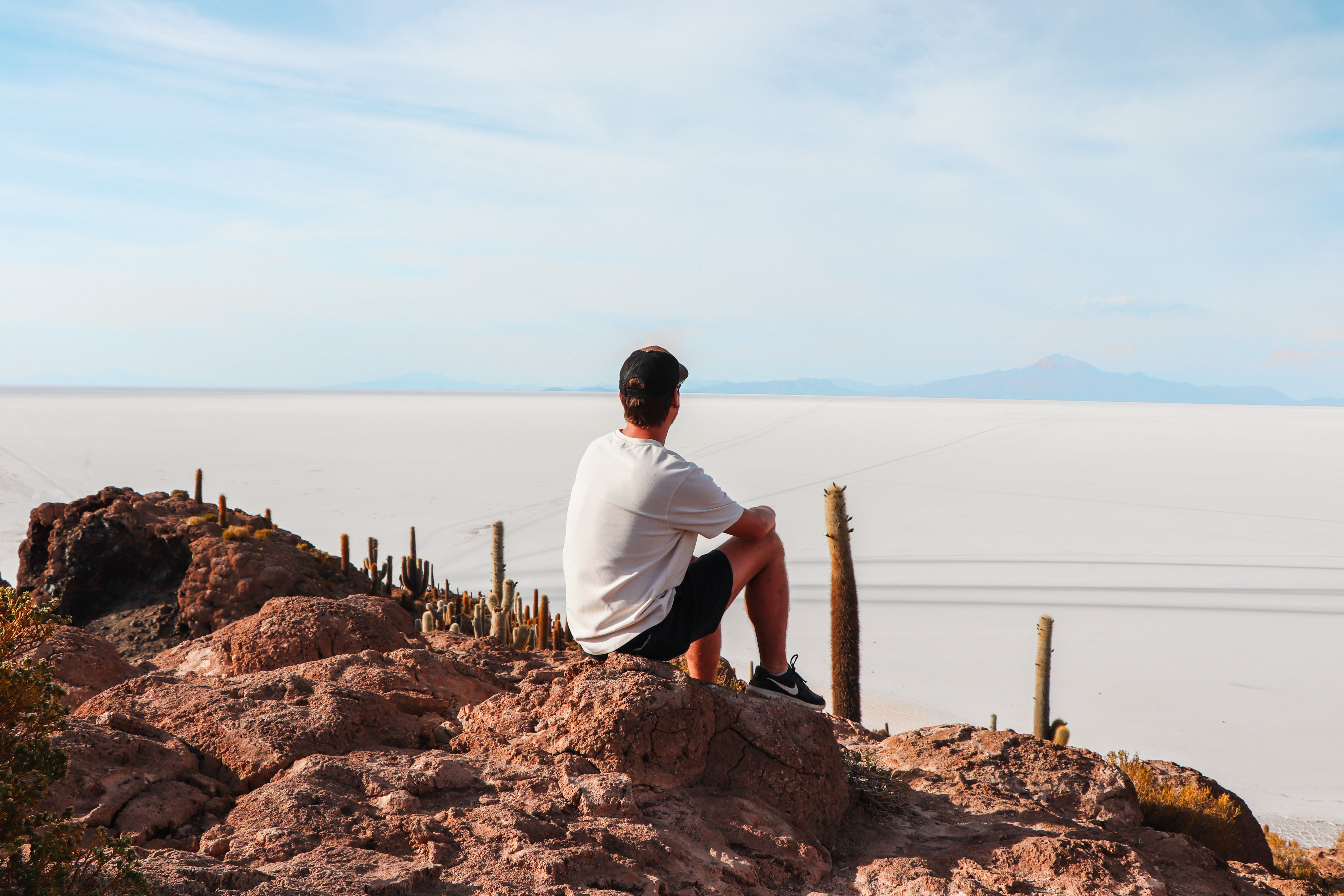
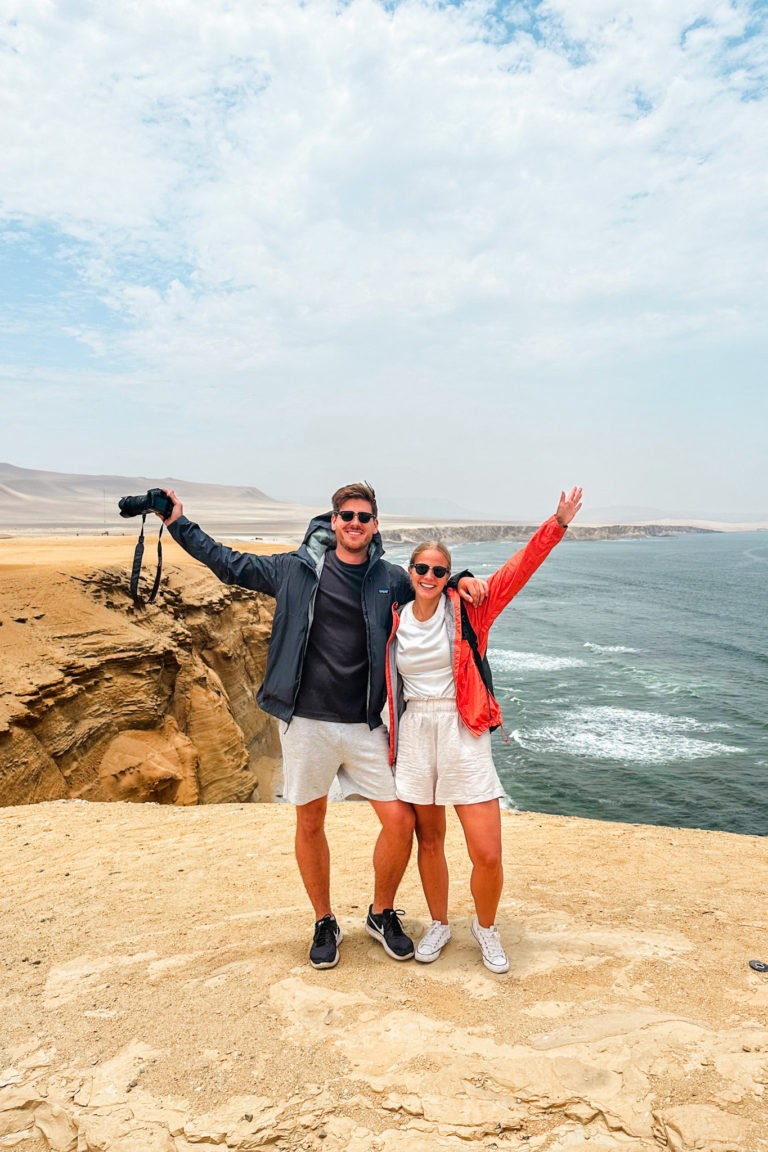






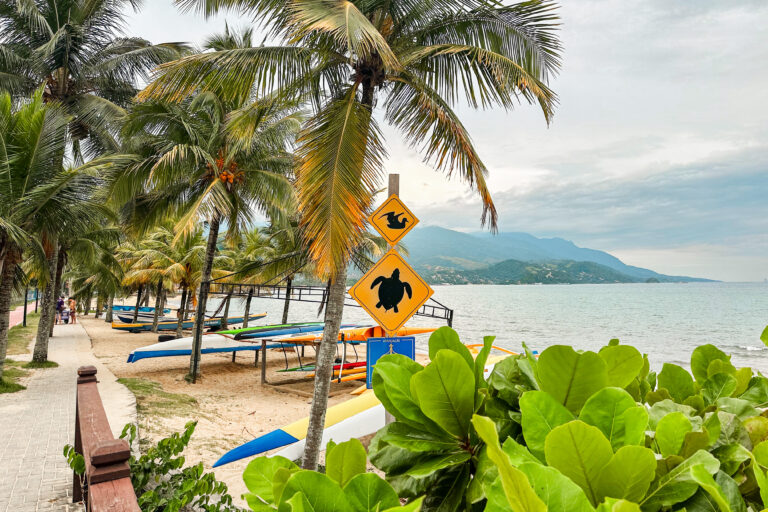
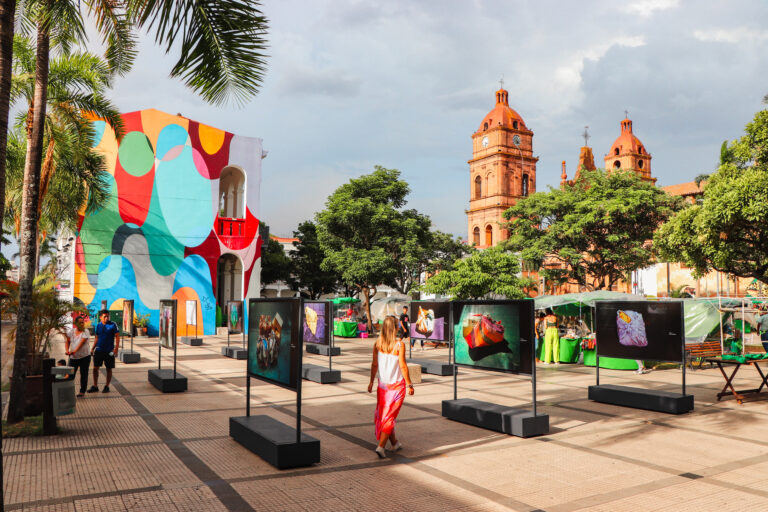
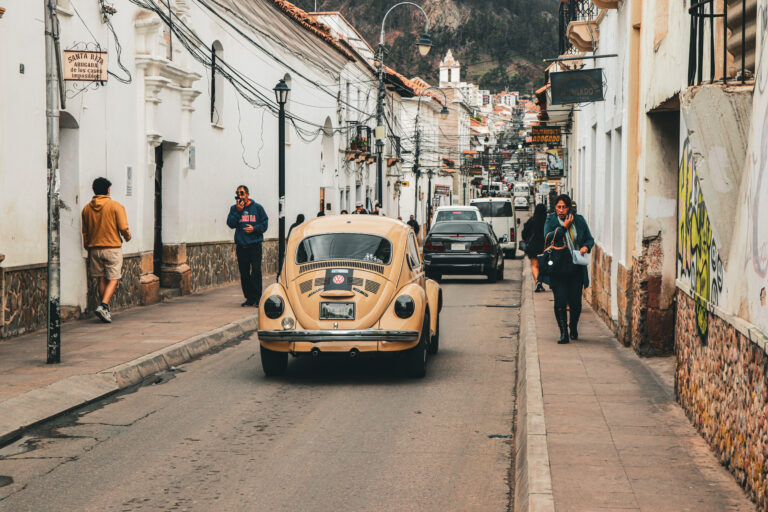
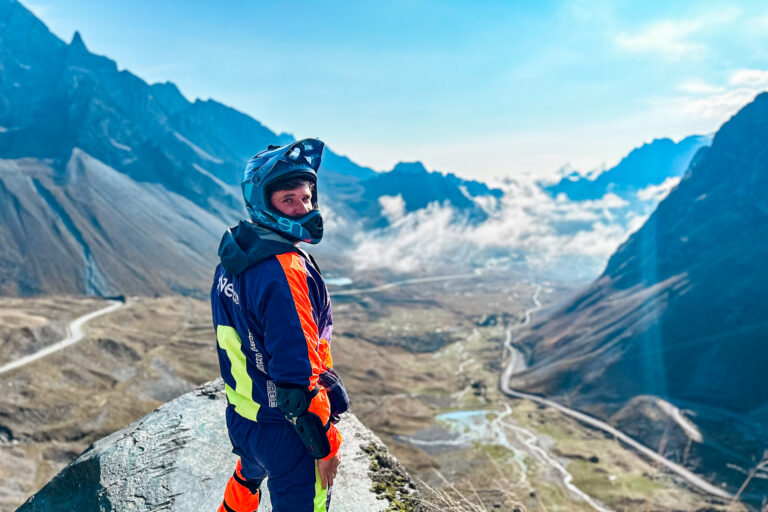
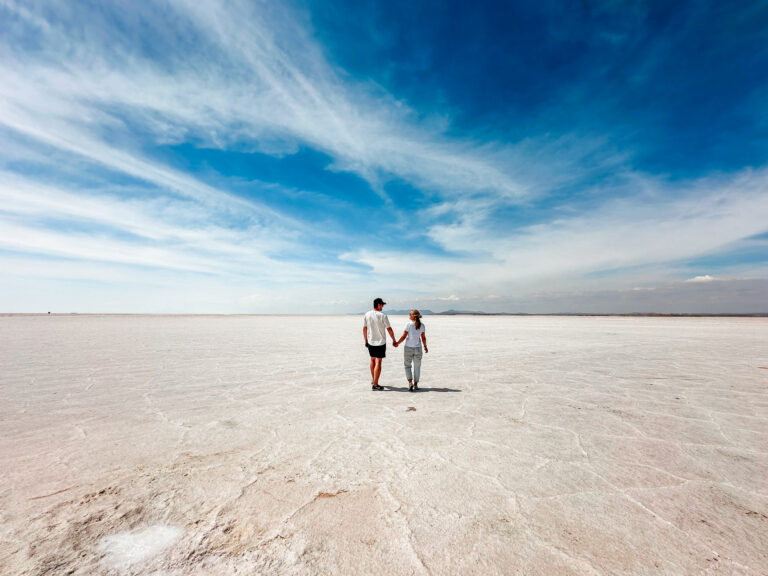
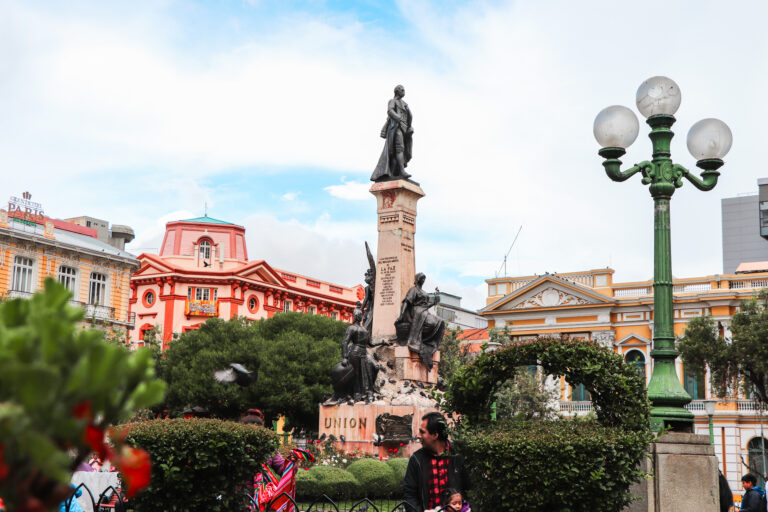
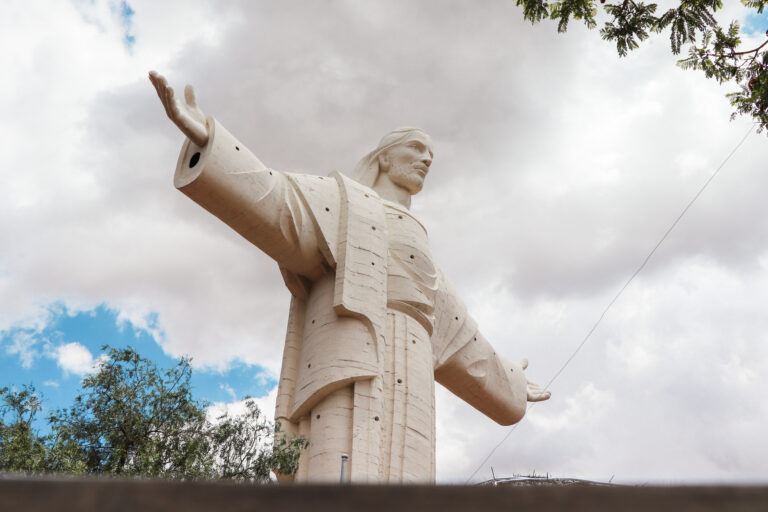
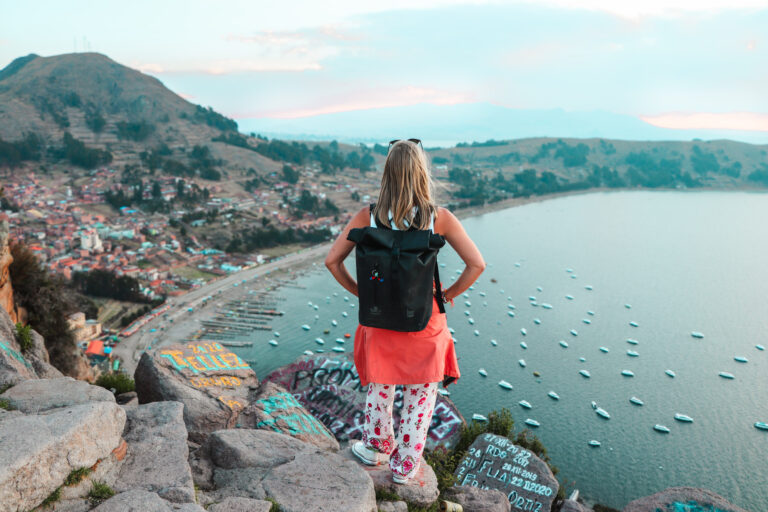
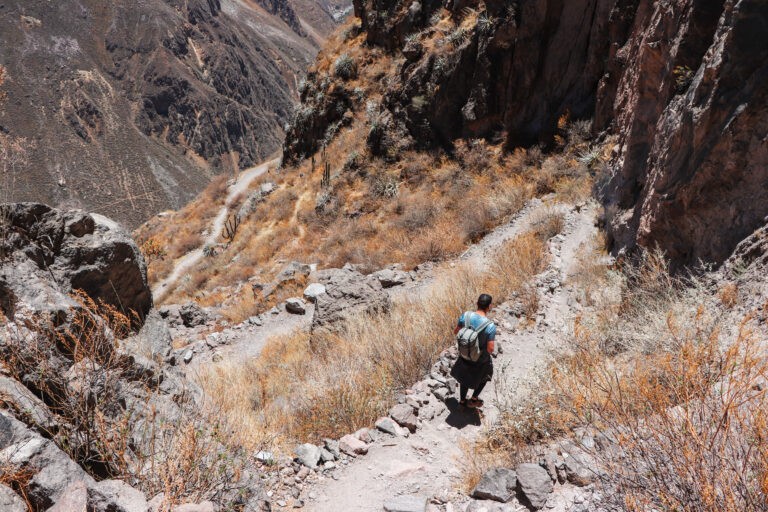
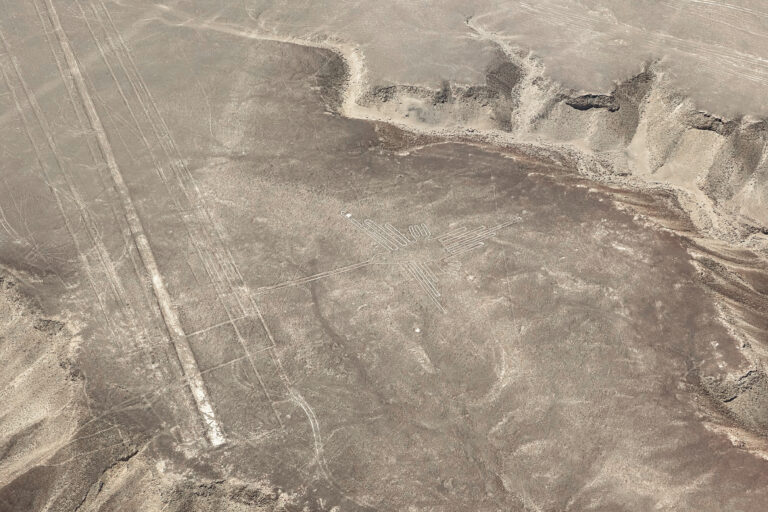

Hey, which 2D 1N tour did you take from Cochabamba to Torotoro please? X
Hey BP,
there are not too many tour operators in Cochabamba. We did our 2D/1N tour to ToroToro with Vision Tours Bolivia because they had the most and also the best reviews.
The tour was superb, well-organized, and super professional – so we can recommend them.
The only downside was that because we booked a shared tour, we needed to wait two days for them to fill the remaining spaces, not knowing if it would be canceled. But they were very upfront with that, so no issue.
So, if you want to play it safe, you can book their private tour online. It’s a bit pricier, but then you can be sure that it will work out.
Have a great time in Bolivia: Torotoro is otherwordly beautiful!
Jens